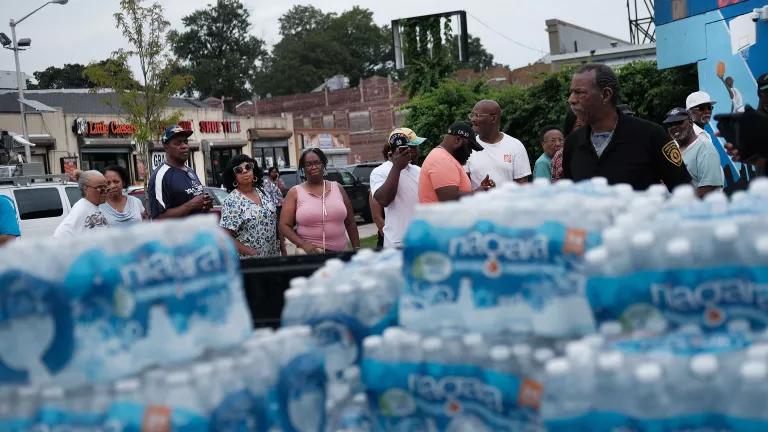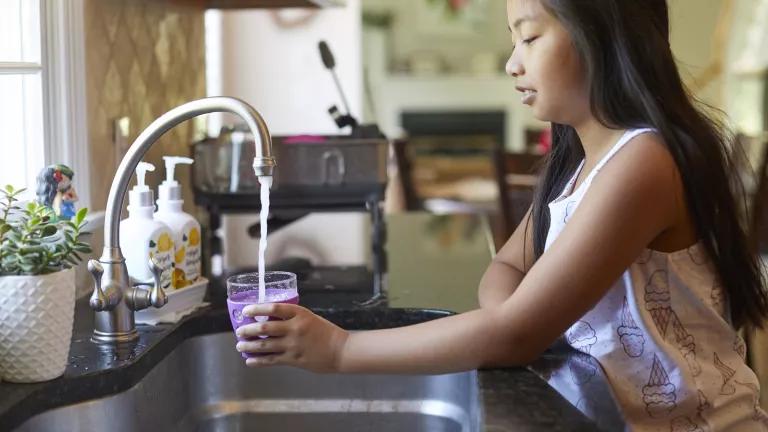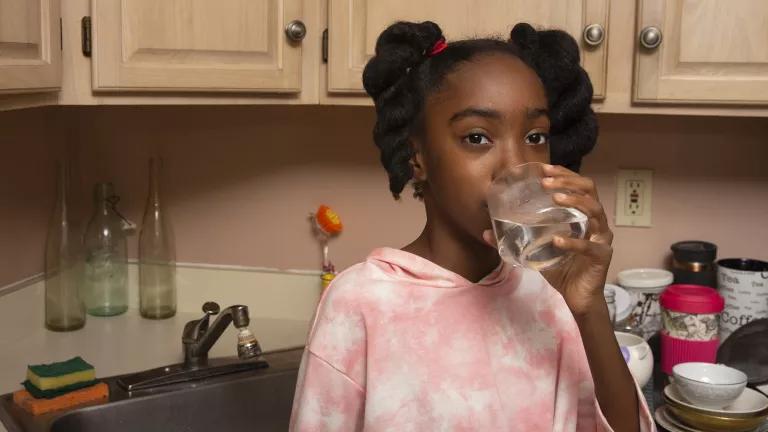New York: Protect People from Water Shutoffs During COVID-19

Learn more about NRDC’s response to COVID-19.
[UPDATED 11/4/20 to reflect extension of NY's state of emergency to Nov. 3]
Over the summer, New York State did the right thing for utility customers feeling the severe economic downturn during the pandemic. The state adopted legislation (Laws of 2020, Chapters 108 and 126) requiring all utilities—water, gas, electric, telephone—to stop shutting off any residential customer’s service for nonpayment of bills during the COVID-19 state of emergency.
The law provides extended protection beyond that date, until the law expires on March 31, 2021, for customers who have been financially impacted from the pandemic, to give them a chance regain some financial footing.* These customers also get the right to an affordable, extended payment plan for their overdue bills. (See NRDC’s blog here for more details of the new law.)
This necessary and humane response to the COVID-19 pandemic, and the resulting economic crisis, has helped to protect many New Yorkers. Even in the best of times, no one should be forced to go without running water or power in their home due to unaffordable bills—although every year millions across the country have their utilities shutoff, especially in communities of color. Now, during a pandemic, ensuring universal access to water is truly a matter of life and death, as we all need water to wash our hands to protect ourselves, our families, and our communities.
But New York’s “State disaster emergency” is set to expire on Dec. 3, and state agencies haven’t publicized the shutoff protections that continue beyond that date. People only know their rights if they happen to have spotted a notice in the mail or elsewhere from their utility—if the utility actually sent a required notice that accurately explains those rights.
Unfortunately, we’re already finding that many municipal water utilities are misinforming their customers—erecting impermissible barriers to securing the protections the law guarantees. Not necessarily intentionally, but it’s happening nonetheless.
If people don’t even know their rights, and utilities don’t have clear and simple ways for people to claim the protections to which they’re entitled, there’s little doubt that people in financial distress will be shutoff. Thousands of New York families are at risk.
Pre-pandemic, studies showed communities of color experiencing water shutoffs, and utility shutoffs in general, at the highest rates. And COVID-19 has disproportionately affected Black communities across the country—both their health and their income—due to systemic racism. A wave of utility shutoffs now would hit Black communities, communities of color, and low-income communities the hardest, putting them at even greater risk of infection without access to running water during the pandemic, and saddling them with long-term debt from utility bills that they cannot afford to pay.
Utilities Are Already Violating the New Law
Last week, along with a diverse coalition including civil rights, social and economic justice, legal services, and environmental organizations, we detailed a series of violations of the new law by municipal water utilities in a letter to the state’s Department of Public Service (DPS) [doc. # 47] and in formal comments to the Public Service Commission [doc. # 55].
Specifically, we reviewed the customer notices of six municipal water utilities in Long Island (Hempstead, Roslyn, Jericho, Bethpage, Locust Valley, and Garden City Park), one in Chautauqua County in western New York (Jamestown), one in Orleans County near Rochester (Village of Holley), and a group of water/electric utilities represented by the NY Municipal Power Agency. Not a single one came close to complying with the law.
For example, the Department of Public Service has explained [doc. #1] that, under the law, utilities must invite customers to self-certify that they are financially impacted by COVID customers, and must exempt those customers from shutoff for 180 days beyond the state of emergency, with no up-front payments required. But some of the water utilities we examined are asking for additional financial information and documentation to show eligibility. Some are telling customers that they must begin a payment plan immediately to address their overdue bills. None is informing customers of their right to a payment plan on terms “that the customer is able to pay, considering his or her financial circumstances,” with “installments as low as $10 per month…when the customer or applicant demonstrates financial need for such terms.” One is actually requiring customers who can’t pay in full to contact the utility “in person” discuss payment options to avoid shutoff, requiring customers to take an unnecessary risk to their health during the pandemic.
Only a tiny minority of the state’s 1,000+ municipal water utilities even filed with DPS their plan for implementing the new law, or a copy of their customer notice, as directed by DPS.
Prior to the new shutoff moratorium law, publicly-owned water utilities were entirely exempt from consumer protections established by the state Public Service Law and the Public Service Commission’s rules. These utilities need to get up-to-speed immediately. And the state must provide technical assistance, oversight, and ultimately enforcement if needed, to ensure that they do.
What the Department of Public Service Needs to Do Now
With our coalition partners, we urge the Department of Public Service to take the following steps now, in anticipation of the expiration of the COVID-19 state of emergency on November 3, 2020:
- Undertake extensive outreach to municipal water utilities, in coordination with other state agencies, such as the Department of Health’s Bureau of Water Supply Protection and Department of State’s Division of Local Government Services, which have regular contact with (and exercise oversight of) municipal water utilities and local governments;
- Further clarify municipal water utilities’ obligations under the law, including their obligations under the Department of Public Service’s deferred payment agreement (“DPA”) regulations;
- Provide detailed, standardized forms for utilities to use to notify customers of their rights; and
- Widely publicize the rights provided by the new law and provide direct help to at-risk customers, including by informing the public that customers may contact the Department of Public Service for assistance if they believe that their utility may be violating the law.
New Yorkers are following the advice of the health experts and are staying home in great numbers during the pandemic. The need for water and other utility services are all the more important. We need to ensure that they continue for our most vulnerable populations.
*The law provides for 180 days of extended protection beyond the end of the state of emergency. However, the law expires on March 31, 2021 as per Laws of 2020, Chapter 126. Following Gov. Cuomo's extensions of the state of emergency, the law's expiration comes less than 180 days after the state of emergency ends. Therefore, the extended protections will end on March 31, 2021.




